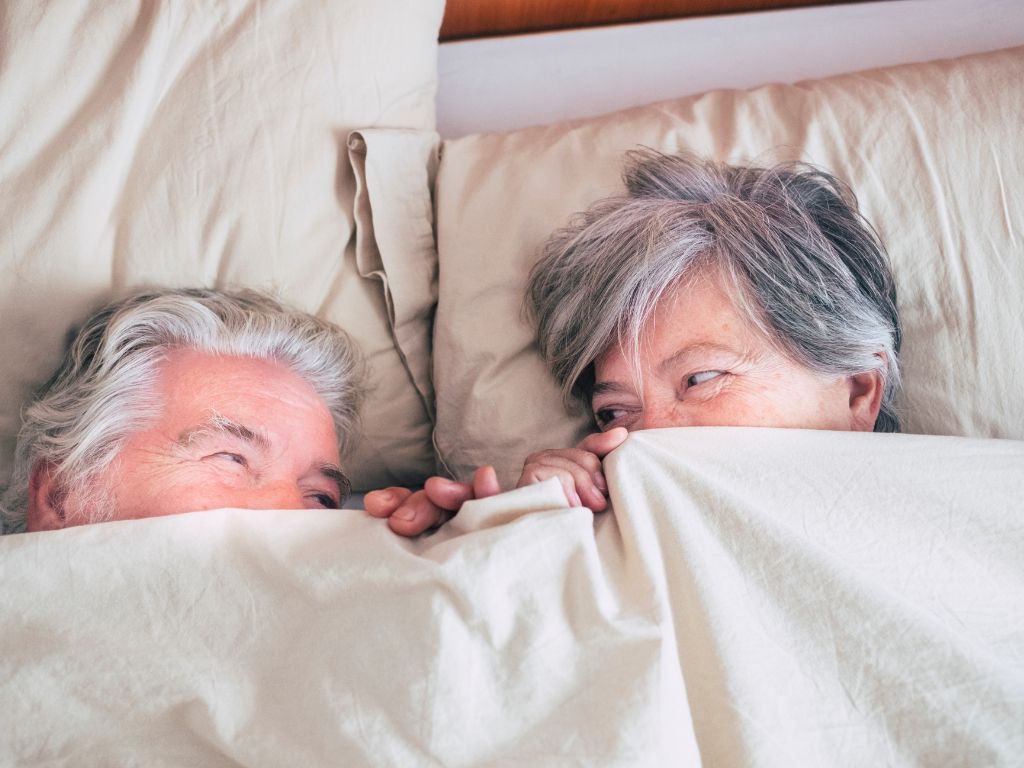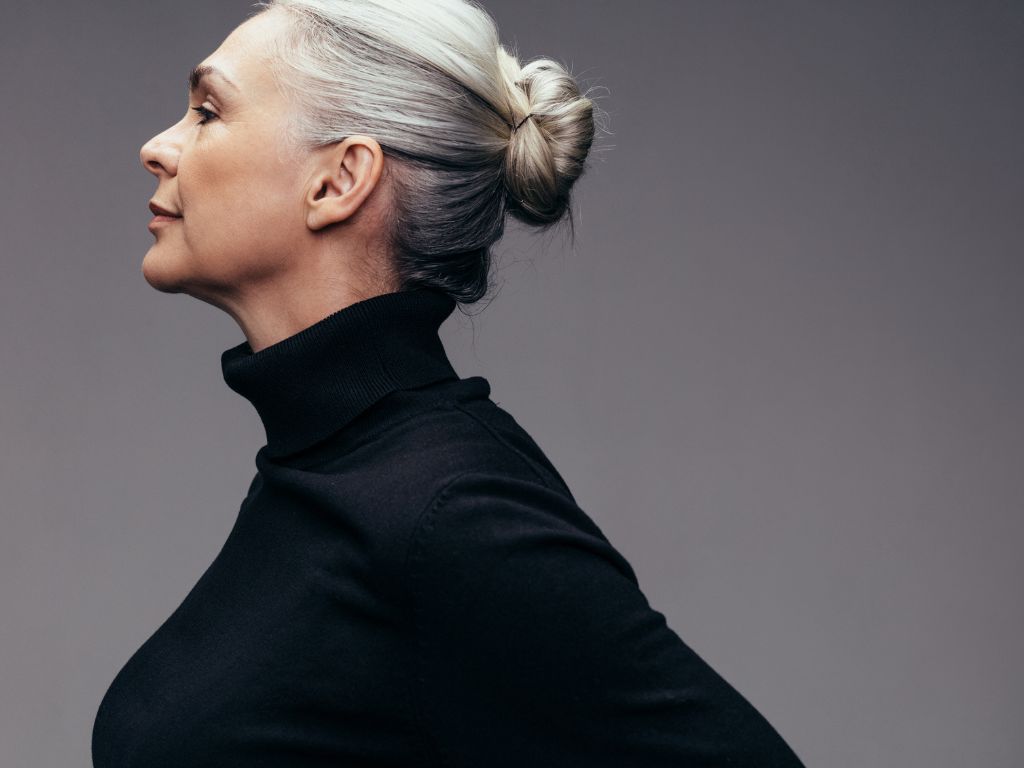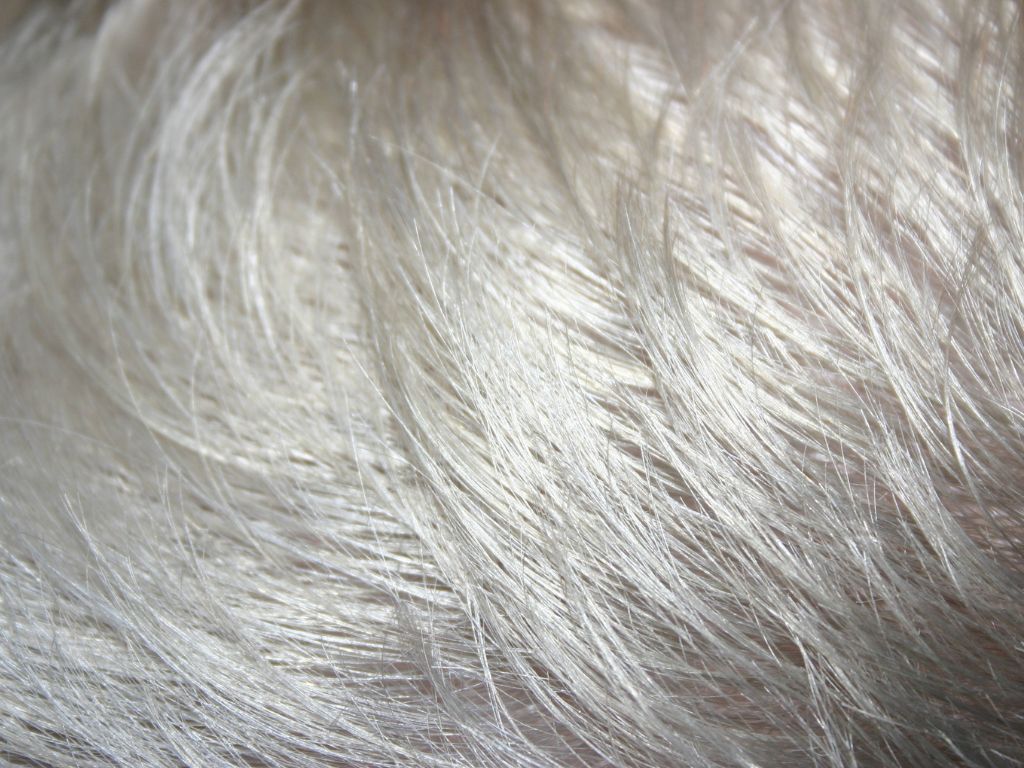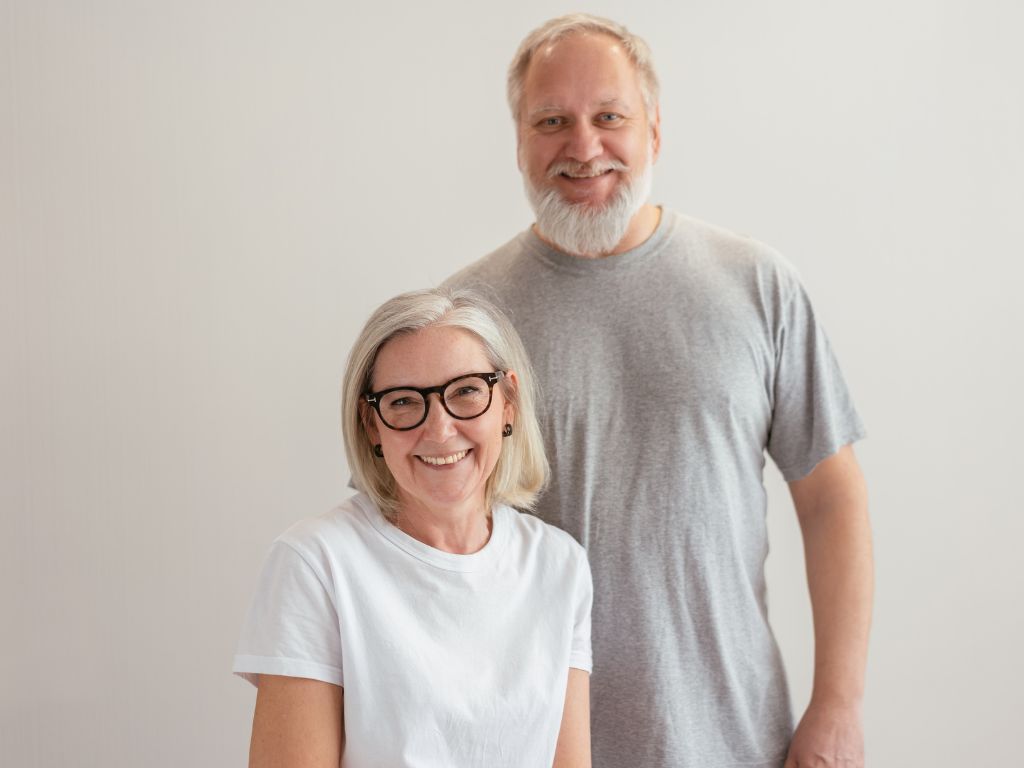
Have you ever thought about reversing grey hair? Seeing the first grey strands can be a shock. But, what if we told you that new research might help?
A study has found that it might be possible to reverse grey hair. This challenges the idea that once hair loses pigment, it can’t be fixed. The results are early and small, but they’re promising.
Table Of Contents:
- Key Takeaways
- Understanding the Causes of Grey Hair
- Lifestyle Factors Contributing to Premature Greying
- Medical Conditions Associated with Grey Hair
- The Science Behind Reversing Grey Hair
- Natural Remedies for Grey Hair
- Topical Treatments for Grey Hair Prevention and Reversal
- Supplements for Grey Hair Prevention
- Embracing and Enhancing Grey Hair
- Myths and Misconceptions About Grey Hair
- The Psychological Impact of Going Grey
- Future Prospects in Grey Hair Research
- Conclusion
- FAQ
- Source Links

If you’re looking for ways to deal with grey hair, this is exciting news. Let’s dive into the science behind it. We’ll look at what causes grey hair and if we can turn back the clock. Get ready to learn more about your grey hair questions and answers.
Key Takeaways
- A recent study suggests that reversing grey hair may be possible, at least temporarily.
- Stress has been linked to the development of grey hair, and reducing stress may help restore some color.
- The study involved a small number of participants, and the changes in hair color were subtle.
- Grey hair reversal seems most likely in the early stages of greying.
- More research is needed to fully understand the potential for grey hair reversal and develop effective treatments.

Understanding the Causes of Grey Hair
Ever wondered how grey hair forms and what leads to it? Grey hair is often linked to aging, but many factors play a part. Let’s look into the science of grey hair, including genetics, oxidative stress, and nutrition.
Hair color comes from a pigment called melanin, made by cells in the hair follicles. There are two types: eumelanin for dark hair and pheomelanin for lighter shades. As we get older, these cells make less melanin, causing hair to turn grey or white.

Genetics greatly affects when and how our hair goes grey. Family history and genes can lead to early graying. In fact, it can start as early as 20 in whites, 25 in Asians, and 30 in African-Americans. By 50, half of both men and women will have a lot of grey hair.
Oxidative stress also plays a role in grey hair. It happens when free radicals, harmful molecules, outnumber antioxidants in our body. These radicals can hurt the cells making melanin, leading to grey hair.
| Age Group | Percentage of Grey Hair |
|---|---|
| 30s | 10-20% decrease in melanin production per decade |
| 50s | 50% of men and women have at least 50% grey hair |
Our diet affects grey hair too. Not having enough B vitamins, like B9, B12, biotin, or vitamin D, can lead to early grey hair. Eating well can help prevent or slow down grey hair.
“Embracing gray hair and seeing it positively is within individual control. While grey hair is largely genetic, lifestyle factors can speed up or delay the natural process.” – Dr. Sarah Thompson, Dermatologist

So, how can we stop or slow grey hair? We can’t change our genes, but we can live healthily. This means managing stress, avoiding smoking and too much alcohol, protecting our hair from the sun, and eating well. Eating foods high in antioxidants can fight oxidative stress and help prevent early grey hair.
Grey hair is a natural part of aging. It’s important to accept it instead of fearing it. By understanding its causes and living healthily, we can embrace this new phase of life.
Lifestyle Factors Contributing to Premature Greying
Genetics and aging are big factors in getting gray hair. But, your lifestyle can also speed up the process. Stress, smoking, and eating poorly are often linked to early gray hair.

Stress can make your body inflame, which might make your hair turn gray faster. If your family has a history of depression, you might see gray hair early. To slow down gray hair, try relaxing, exercising, and taking care of yourself.
Smoking is bad for your hair, making it turn gray early. A study in 2013 showed smoking linked to gray hair before 30. Quitting smoking can help delay gray hair.
Not getting enough nutrients can also make your hair gray early. Not having enough ferritin, calcium, vitamin D-3, copper, zinc, and iron is linked to gray hair. Eating foods like chicken, walnuts, fish, seeds, and leafy greens can help keep your hair healthy and fight graying.
| Lifestyle Factor | Impact on Premature Greying |
|---|---|
| Stress | Chronic or acute psychological stress can cause inflammation and accelerate graying |
| Smoking | Significant relationship between smoking and developing gray hair before age 30 |
| Nutritional Deficiencies | Lack of nutrients such as ferritin, calcium, vitamin D-3, copper, zinc, and iron linked to premature graying |
Environmental and nutritional factors play a role in premature graying, with stress being a commonly cited reason.
Changing your lifestyle can help prevent gray hair. Taking B-vitamin supplements can also help. Taking care of your gray hair with toning, purple shampoos, and UV protection can keep it healthy and looking good.

Medical Conditions Associated with Grey Hair
Learning about premature graying of hair can reveal underlying health issues. Nutrient deficiencies, like low vitamin B12, iron, and ferritin levels, can cause early gray hair. These nutrients are vital for keeping hair follicles healthy and melanin production steady.

Thyroid disorders, such as hypothyroidism and hyperthyroidism, can also lead to premature graying. The thyroid gland helps control metabolism and hormones, and imbalances can affect hair color. Conditions like vitiligo and alopecia areata can destroy melanocytes, causing white or gray hair.
“I was shocked when my doctor told me that my premature graying could be related to my thyroid issues. It made me realize how interconnected our bodily systems are and the importance of addressing underlying health concerns.”
Genetic conditions like tuberous sclerosis and acatalasemia can also cause early graying. These disorders affect melanin production, leading to gray hair at a young age.
Some medications, such as chloroquine, can also lead to premature graying. If you think a medication is causing your gray hair, talk to your doctor about other options or changes to your treatment.
- Consult with a healthcare professional if you experience premature graying to rule out underlying health issues
- Consider getting tested for nutrient deficiencies, thyroid disorders, and autoimmune conditions
- Be aware of any medications that may contribute to early graying and discuss alternatives with your doctor
While gray hair is a natural part of aging, premature graying can signal health issues. By being proactive and consulting with a healthcare provider, we can support our health and keep our hair vibrant.
The Science Behind Reversing Grey Hair
The exact reason why hair turns gray is still a mystery. But, it’s known that the cells that make pigment stop working. New studies are looking into how to reverse grey hair by focusing on special cells called melanocyte stem cells (McSCs).

A study at NYU found that as hair grows back, fewer McSCs move around. This leads to more gray hair. McSCs are key for making pigment, but they can get stuck. This stops them from making new pigment cells, causing gray hair. Sometimes, up to 50% of McSCs are stuck in a spot that doesn’t let them work right.
The system that makes melanocytes fails early, making most humans and mice go gray. The NYU team is working to fix stuck McSCs. This could help prevent or reverse gray hair, offering hope for those looking for a cure.
“Our study adds to our basic understanding of how melanocyte stem cells work to color hair. The stem cells are balancing two jobs: keeping the stem cell pool healthy for the future and producing enough pigment for the hair. Without them, the hair turns gray.”
– Qi Sun, first author and postdoctoral fellow at NYU Grossman School of Medicine
Stress can make hair turn gray, but it speeds up aging, not how McSCs work. Other things like the sun, hormones, genes, and some health issues can also cause gray hair.
Research is showing us how stem cells work in our bodies. This could lead to new treatments for gray hair and help in cancer research. As we learn more, there’s hope for those wanting to keep their hair its natural color.
Natural Remedies for Grey Hair
There’s no sure way to make grey hair turn back to its original color. Yet, many people try natural remedies to slow down or even reverse grey hair. These remedies aim to give the body nutrients that help with healthy hair growth and color.

One tip is to eat foods high in catalase. This enzyme helps break down hydrogen peroxide in the body. Eating foods like garlic, onions, and cauliflower might slow down grey hair. Also, getting enough vitamins and minerals like B12, biotin, and vitamin E can help keep hair healthy and delay grey hair.
Some folks use Ayurvedic herbs to keep their hair from turning grey. Amla, or Indian gooseberry, is full of antioxidants that help the scalp and hair. Ashwagandha and curry leaves are also popular for their ability to boost melanin production and stop grey hair early. You can take these herbs as supplements, drink them in tea, or use them as hair masks.
I’ve been using amla powder in my hair care routine for a few months now, and I swear my greys are coming in more slowly than before. It could be a coincidence, but I’m going to keep using it just in case!
For hiding grey hair, natural hair dyes like henna, coffee, or black tea might be an option. These dyes won’t change grey hair back to its original color but can give a temporary color boost. Just remember, the results can vary based on your hair type and color, so test it on a small area first.
| Natural Remedy | Potential Benefits |
|---|---|
| Catalase-rich foods (garlic, onions, cauliflower) | May help slow down greying process by breaking down hydrogen peroxide |
| Grey hair vitamins (B12, biotin, folic acid, vitamin E) | Support overall hair health and potentially delay greying |
| Ayurvedic herbs (amla, ashwagandha, curry leaves) | Believed to stimulate melanin production and prevent premature greying |
| Natural hair dyes (henna, coffee, black tea) | Provide temporary color boost without harsh chemicals |
While natural remedies for grey hair show promise, their effectiveness is not proven. Lifestyle choices like managing stress, protecting from the sun, and avoiding harsh hair treatments also affect how fast hair turns grey. If you’re worried about grey hair or have other hair issues, talk to a healthcare professional. They can check for health problems and suggest the best steps for you.
Topical Treatments for Grey Hair Prevention and Reversal
I’ve been looking for ways to stop and reverse grey hair. Many brands now offer products to keep your hair color looking natural for longer.

The Living Proof Scalp Care Density Serum caught my eye. It has an Anti-Grey Complex with amino acids and antioxidants. This complex protects hair color from damage, helping to keep it looking natural.
Other great options include the Vegamour GRO AGELESS Anti-Gray Hair Serum and Phyto Paris RE30 Anti-Grey Hair Treatment. They aim to fix the root causes of grey hair, like damage and less melanin.
Arey’s To The Root treatment also caught my interest. It uses a special blend to slow and color back in grey hair. With more people searching for these products, it shows they’re in demand.
When picking products, I look for ingredients like palmitoyl tetrapeptide-20. Studies show it helps make hair color come back. Biotin, calcium pantothenate, and vitamin D3 also support healthy hair color.
“I’ve been using a grey hair shampoo and oil containing palmitoyl tetrapeptide-20 for the past three months, and I’m already seeing a noticeable reduction in my grey hair. It’s amazing to find products that can actually help reverse the greying process!” – Sarah, 42
Topical treatments can work, but results differ for everyone. Your genes, age, and health can affect how well they work. Always test a new product on a small area first to avoid any bad reactions.
| Product | Key Ingredients | Benefits |
|---|---|---|
| Living Proof Scalp Care Density Serum | Antioxidant-rich Anti-Grey Complex, amino acids | Protects hair pigmentation against oxidative stress, maintains natural color |
| Vegamour GRO AGELESS Anti-Gray Hair Serum | Peptides, antioxidants | Targets root causes of grey hair, helps restore natural pigmentation |
| Phyto Paris RE30 Anti-Grey Hair Treatment | Peptides, antioxidants | Targets root causes of grey hair, helps restore natural pigmentation |
| Arey To The Root | Peptide, patent-pending blend of antioxidants | Slows and re-pigments gray hair |
Using a grey hair shampoo, oil, or special products can help fight premature greying. By taking care of your hair and scalp, you can slow down or even reverse grey hair. This keeps your hair looking natural for longer.
Supplements for Grey Hair Prevention
There’s no single pill to stop or reverse grey hair, but some supplements can slow it down and keep hair healthy. Many people use grey hair vitamins and minerals to keep their hair’s color and structure. These supplements have ingredients like biotin, zinc, copper, and vitamins B5, B6, and B12. These help feed hair follicles and boost melanin production.

Arey’s Not Today, Grey is a popular supplement with vitamin D, copper, B12, and fo-ti. Fo-ti is an herb from traditional Chinese medicine that helps prevent and reverse grey hair. It fights off excess hydrogen peroxide and boosts blood flow. While stories suggest it helps, we need more studies to prove it works.
Not having enough vitamins B12 and D, and minerals like ferritin and selenium can lead to early greying. A study found checking for these shortages in early grey hair patients and giving them supplements can slow down greying. But, the proof for supplements like PABA, pantothenic acid, biotin, niacin, and inositol is not strong.
I’ve been taking a grey hair supplement for a few months now, and while I can’t say it’s reversed my greys, I have noticed my hair looks healthier and shinier overall. I think it’s worth a try, especially if you’re dealing with premature greying.
When picking a grey hair supplement, choose one with many hair-healthy vitamins and minerals, such as:
- Vitamin B5 (Pantothenic Acid)
- Biotin
- Folic Acid
- Vitamin B12
- Vitamin C
- Vitamin D
- Copper
- Iron
- Calcium
- Zinc
Supplements aren’t a sure way to stop grey hair, but they can support hair health and maybe slow down greying. Eating well, managing stress, and using a good haircare routine with supplements can help keep your hair looking good.
Embracing and Enhancing Grey Hair
As I’ve grown older, I’ve seen more grey hairs. At first, I felt shy about it, especially when a bank teller noticed the change. It showed me how women feel pressured to keep their hair colored to look young.
But now, I love my grey hair. It’s a choice to accept aging naturally. Many women are doing the same, joining the #silversisters movement online.

There are many ways to style and color grey hair. Techniques like highlighting and balayage can make it look stunning. Sales of products for grey hair are going up, showing more people are embracing their natural look.
It’s not about letting grey hair go wild. To keep it looking great, I use purple shampoo. Here are some tips for maintaining grey hair:
- Use a silver-enhancing shampoo and conditioner to prevent yellowing and brassiness
- Deep condition regularly to keep hair soft and manageable
- Opt for a shorter haircut to remove damaged ends and showcase the natural texture of grey hair
- Experiment with different styling products, such as mousses and texturizing sprays, to add volume and definition
- Protect hair from heat styling and environmental stressors with leave-in treatments and heat protectant sprays
Embracing grey hair is a personal journey. You can choose to keep it natural or try different colors. The key is to feel confident and beautiful in your own skin. As more women go grey, we’re changing how society sees aging and beauty.
Myths and Misconceptions About Grey Hair
Over the years, I’ve heard many myths about grey hair. These myths can cause confusion and worry. One myth is that plucking a grey hair makes more grow back. This isn’t true. Plucking may weaken hair follicles, but it won’t make more grey hairs appear.

Another myth is that coloring your hair speeds up greying. Hair dye doesn’t cause new grey hairs. The contrast between colored hair and grey roots might make it seem like you’re going grey faster, but that’s just an illusion.
Stress is often seen as a cause of grey hair, but it’s not the main reason. The aging process and genetics are more important in making hair grey.
Some think laser hair removal can get rid of grey hairs, but that’s a myth. Laser treatments work on hair pigment. Since grey hairs have little pigment, laser doesn’t work well on them.
Lastly, people believe grey hair can’t be reversed. While grey hair is more prone to damage, it’s still alive and can be cared for. You can’t turn grey hair back to its original color, but you can manage and improve its look.
Knowing about these myths can help you avoid stress and make better hair care choices. Embracing your grey hair can be empowering, despite what you’ve heard.
Grey hair often turns yellow for several reasons, including:
- Exposure to pollutants and smoke
- Using hair products with yellow tones
- Mineral deposits from hard water
- Natural aging of grey hair
To stop or reduce yellowing, use purple-toned shampoos and conditioners for grey hair. Also, protect your hair from too much sun and environmental harm.
The Psychological Impact of Going Grey
Going grey is a big step in life, often seen as aging. For many, the first grey hairs bring feelings like anxiety or acceptance. Whether to keep dyeing it or to let it go grey is a big choice. It affects how we see ourselves and our confidence.
Now, more women of all ages are choosing to love their grey hair. This move challenges old beauty standards. It’s about valuing the aging process and rejecting the need to look young forever.
But, accepting grey hair isn’t always easy. Many worry it will make them look old or less appealing. This worry can make people feel insecure and hesitant to accept their natural aging.
To overcome these feelings, focus on the good things about going grey. Embracing your natural color can make you feel more real and true to yourself. It’s a way to stand up to society’s beauty ideals and celebrate aging’s beauty and wisdom.
“Going grey is not just about letting your hair color change; it’s about embracing who you are and celebrating your unique beauty at every stage of life.” – Lorraine Massey, author of “Silver Hair: Say Goodbye to the Dye and Let Your Natural Light Shine”

If going grey is hard for you, here are some tips:
- Be around people who love their grey hair and feel confident.
- Take care of yourself by eating well, exercising, and reducing stress.
- Try out different hairstyles and accessories to find what works with your grey hair.
- Talk to friends, family, or a therapist to help you deal with the emotional side of going grey.
Choosing to accept grey hair takes courage and self-acceptance. By seeing the good in aging and celebrating grey hair’s beauty, you can find peace and confidence in your look.
Future Prospects in Grey Hair Research
Grey hair research is making exciting strides, offering hope for those wanting to stop or reverse aging hair signs. A study in Nature by New York University’s Grossman School of Medicine has uncovered new insights into hair graying. Led by Qi Sun, a postdoctoral fellow, the research focused on melanocyte stem cells (McSCs) in mice.
These cells are key to making hair color. The study found that trapped McSCs in the hair follicle could lead to grey hair. This could mean that making these stem cells mobile again could stop or reverse grey hair.
The study also linked aging with McSCs getting stuck in the hair follicle, which leads to grey hair. Researchers aim to find ways to reactivate these cells and keep hair color vibrant. This could help people keep their natural hair color as they age.
This research also has big implications for treating hair and skin issues like melanoma, alopecia areata, and vitiligo. It could lead to new stem cell treatments for hair loss and other conditions.

The global hair color market is expected to hit $33.7 billion by 2030. This shows the big demand for solutions to grey hair. As research advances, we’ll likely see new treatments and products. These will let people keep their natural look or choose their hair color.
“The link between emotional stress and clinical outcomes in melanoma patients opens new avenues for research in stress and cancer therapy intersection.” – Qi Sun, postdoctoral fellow at NYU Langone Health
We may not have a quick fix for grey hair yet, but the outlook is bright. Dedicated scientists are working hard to understand and solve the grey hair puzzle. I’m sure we’ll see big breakthroughs soon, offering hope and solutions to many people.

Conclusion
Grey hair is a natural part of aging that many people experience. It can make some feel less confident. Factors like lifestyle, health, and genes affect when and how much hair turns grey. But, new studies show that in some cases, grey hair can come back.
This means the idea that once hair goes grey, it never changes is not true. Researchers found that grey hairs can turn black again in people of all backgrounds and ages. This shows that greying hair is not always permanent.
There are ways to manage and accept grey hair, even if there’s no cure. You can use temporary or semi-permanent hair colors for a quick fix. Or, go for permanent color for longer results.
When choosing a product, think about what you need and your lifestyle. Products with nourishing ingredients can keep your hair healthy. Eating well, managing stress, and using the right hair care products can also help prevent early greying.
As scientists learn more about grey hair, we might see better solutions soon. For now, seeing grey hair as a sign of wisdom and experience is empowering. Whether you dye your hair or not, focus on feeling good about yourself. Stay updated on the latest grey hair facts and solutions to make the best choices for your hair and health.

FAQ
Can gray hair be reversed?
Until recently, it was thought that once a hair follicle stopped producing melanin, it couldn’t start again. But a new study suggests it might be possible to reverse gray hair when stress is reduced. We need more research to understand this better and find effective treatments.
What causes gray hair?
Gray hair comes mainly from aging, as hair follicles make less melanin over time. Genetics also play a big part in when and how much gray hair you get. Oxidative stress, an imbalance of free radicals and antioxidants in the body, might also make hair follicles lose pigment.

Can lifestyle factors contribute to premature graying?
Yes, some lifestyle habits can lead to early gray hair. Chronic stress can cause inflammation in the body, which might speed up graying. Smoking and not getting enough sleep have also been linked to premature graying.
Are there any medical conditions associated with gray hair?
Some health issues can cause early graying, like nutrient shortages (low vitamin B12 or ferritin), certain genetic conditions, thyroid disease, vitiligo, and alopecia areata. Some medicines, like chloroquine, can also lead to early graying.

How do hair care brands approach reversing gray hair?
Hair care brands are creating products to help keep natural color and bring back color to gray hair. These products often have antioxidants to fight graying by protecting pigmentation from oxidative stress. But we need more research to see if these treatments work.
Are there any proven natural remedies to slow down the graying process?
There are no proven natural ways to slow down hair graying yet. Eating well might improve health and lower the risk of nutritional issues linked to early graying. Changing your lifestyle, like quitting smoking and managing stress, might help prevent early graying. But we need more evidence.

What are some popular topical treatments for gray hair prevention and reversal?
Popular products include the Living Proof Scalp Care Density Serum, Vegamour GRO AGELESS Anti-Gray Hair Serum, Phyto Paris RE30 Anti-Grey Hair Treatment, and Arey’s To The Root. These products have antioxidants, peptides, and other ingredients aimed at slowing and re-pigmenting gray hair.
Can supplements help prevent gray hair?
Supplements like Arey’s Not Today, Grey have vitamins and minerals that might prevent early graying, boost melanin production, and strengthen hair’s protective structure. While supplements may help reduce oxidative stress, we’re waiting for clinical results.

How can I embrace and enhance my gray hair?
Accepting gray hair is a personal choice. To keep grays looking vibrant and silver, use lots of purple shampoo. If you want to cover your gray, you can try temporary or permanent hair coloring.
What are some common myths about gray hair?
Some myths say coloring your hair makes it gray faster, plucking gray hair makes more grow, laser hair removal gets rid of gray hairs, and bleaching causes gray hair. Experts think these myths are likely not true.

Source Links
- Gray Hair Can Return to Its Original Color–and Stress Is Involved, of Course – https://www.scientificamerican.com/article/gray-hair-can-return-to-its-original-color-mdash-and-stress-is-involved-of-course/
- What Causes Gray Hair, and Can You Reverse It? – GoodRx – https://www.goodrx.com/health-topic/hair/can-you-reverse-gray-hair
- Can You Actually Reverse Going Gray Now? – https://www.instyle.com/can-you-reverse-gray-hair-8607963
- The science of gray hair – Center for Healthy Aging – https://www.research.colostate.edu/healthyagingcenter/2022/03/30/the-science-of-gray-hair/
- Why does hair turn gray or white? – https://www.medicalnewstoday.com/articles/320288
- Causes of Grey Hair and How to Reverse Greying | MONPURE – https://monpure.com/blogs/news/is-grey-hair-reversible
- Evaluation of Physiological, Psychological, and Lifestyle Factors Associated with Premature Hair Graying – https://www.ncbi.nlm.nih.gov/pmc/articles/PMC6706993/
- Risk Factors Associated with Premature Hair Greying of Young Adult – https://www.ncbi.nlm.nih.gov/pmc/articles/PMC7048355/
- Going Gray: 15 Facts About Why, How, Genetics, and Hair Care – https://www.healthline.com/health/beauty-skin-care/gray-hair-facts
- Is Gray Hair Bad? 11 Possible Causes & Treatment – https://www.medicinenet.com/is_gray_hair_bad/article.htm
- Premature Graying of Hair: Review with Updates – https://www.ncbi.nlm.nih.gov/pmc/articles/PMC6290285/
- What Early Gray Hair Can Tell You About Your Health – https://www.health.com/mind-body/what-going-gray-early-can-tell-you-about-your-health
- A New Study Says Gray Hair May Be Reversible – https://www.popularmechanics.com/science/health/a43669473/gray-hair-may-be-reversible-new-study/
- Is gray hair reversible? A new study digs into the root cause of aging scalps – https://www.npr.org/2023/04/21/1171110131/gray-hair-stem-cells-reversible
- Reversing Gray Hair: Inspiring the Development of New Therapies Through Research on Hair Pigmentation and Repigmentation Progress – https://www.ncbi.nlm.nih.gov/pmc/articles/PMC10535703/
- Home Remedies for Gray Hair: 20+ Natural Methods – https://www.healthline.com/health/home-remedies-for-gray-hair
- Natural Home Remedies For Grey Hair – PharmEasy Blog – https://pharmeasy.in/blog/home-remedies-for-grey-hair/
- 7 Tips and Natural Solutions to Stop Gray Hair – https://www.gaiaherbs.com/blogs/seeds-of-knowledge/stop-gray-hair-naturally
- Reversal of Premature Hair Graying Treated with a Topical Formulation Containing α-Melanocyte-Stimulating Hormone Agonist (Greyverse Solution 2%) – https://www.ncbi.nlm.nih.gov/pmc/articles/PMC10075347/
- Which gray hair reversal products are worth your money, if any? Dermatologists share – https://www.today.com/health/skin-beauty/gray-hair-reversal-serums-rcna97961
- Anti-Grey – https://neofollics.com/collections/anti-grey
- Do Supplements for Gray Hair Work? Here’s What Dermatologists Say – https://www.verywellhealth.com/do-supplements-for-gray-hair-work-8415859
- Fighting Gray Hair With Vitamins – https://www.everydayhealth.com/nutrients/vitamins/fighting-gray-hair-with-vitamins/
- How to Slow Down Hair Graying – https://www.mdhair.co/article/premature-hair-graying
- I Embraced My Gray Hair – But No One Else Did – https://www.instyle.com/hair/i-embraced-my-gray-hair-no-one-else-did
- How To Enhance Natural Grey Hair | John Frieda – https://www.johnfrieda.com/en-uk/blog/hair-care/enhance-natural-grey-hair/
- I Let My Hair Go Gray at 31, and the #SilverSisters Movement Helped Me Learn To Love It – https://www.wellandgood.com/embrace-gray-hair
- Grey Hair Myths | Time For A Grey Hair Touch-Up | Garnier – https://www.garnier.co.uk/how-to/grey-hair-myths
- Grey Hair Myths That You Should Stop Believing – https://pankajakasthuri.in/blogs/news/grey-hair-myths-that-you-should-stop-believing
- The Biggest Gray Hair Myths, Debunked – https://www.goodhousekeeping.com/beauty/g19876584/gray-hair-information/
- Stress can turn hair gray — and it’s reversible, researchers find – https://www.sciencedaily.com/releases/2021/06/210622154339.htm
- Going Gray With Conviction – https://www.psychologytoday.com/us/blog/raging-grace/202010/going-gray-conviction
- Why Going Grey Is a Path to Wholeness – https://www.psychologytoday.com/gb/blog/the-inner-journey/202311/why-going-grey-is-a-path-to-wholeness
- A Breakthrough Study Offers Hope for Reversing Gray Hair – https://www.cobblehilllifecare.org/a-breakthrough-study-offers-hope-for-reversing-gray-hair/
- Decoding the Science of Graying Hair – https://www.dermatologytimes.com/view/decoding-the-science-of-graying-hair
- Cause of grey hair may be ‘stuck’ cells, say scientists – https://www.bbc.com/news/health-65309374
- Why Grey Coverage Is Great for Your Hair’s Health and Style – https://sunday.salon/why-grey-coverage-is-great-for-your-hairs-health-and-style/
- Quantitative mapping of human hair greying and reversal in relation to life stress – https://elifesciences.org/articles/67437
- Premature graying of hair: A concise review – https://cosmoderma.org/premature-graying-of-hair-a-concise-review/
